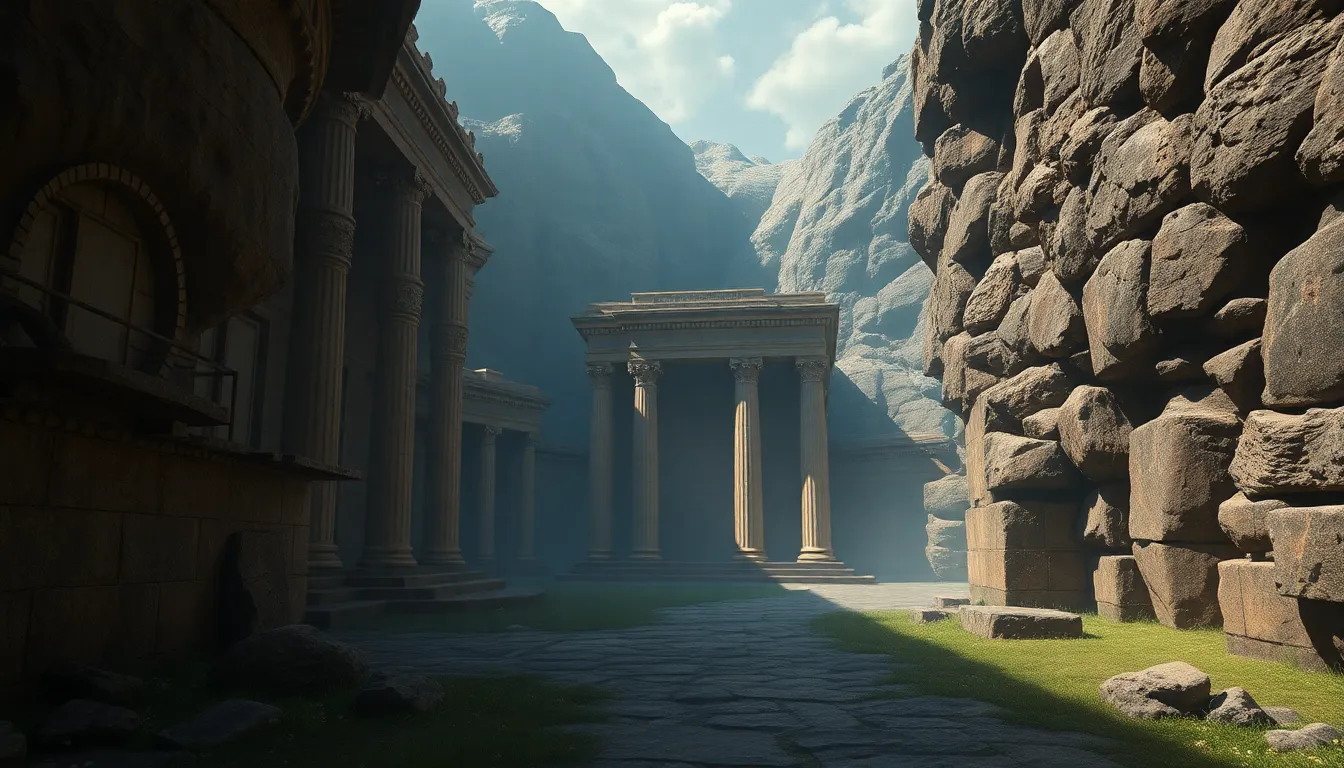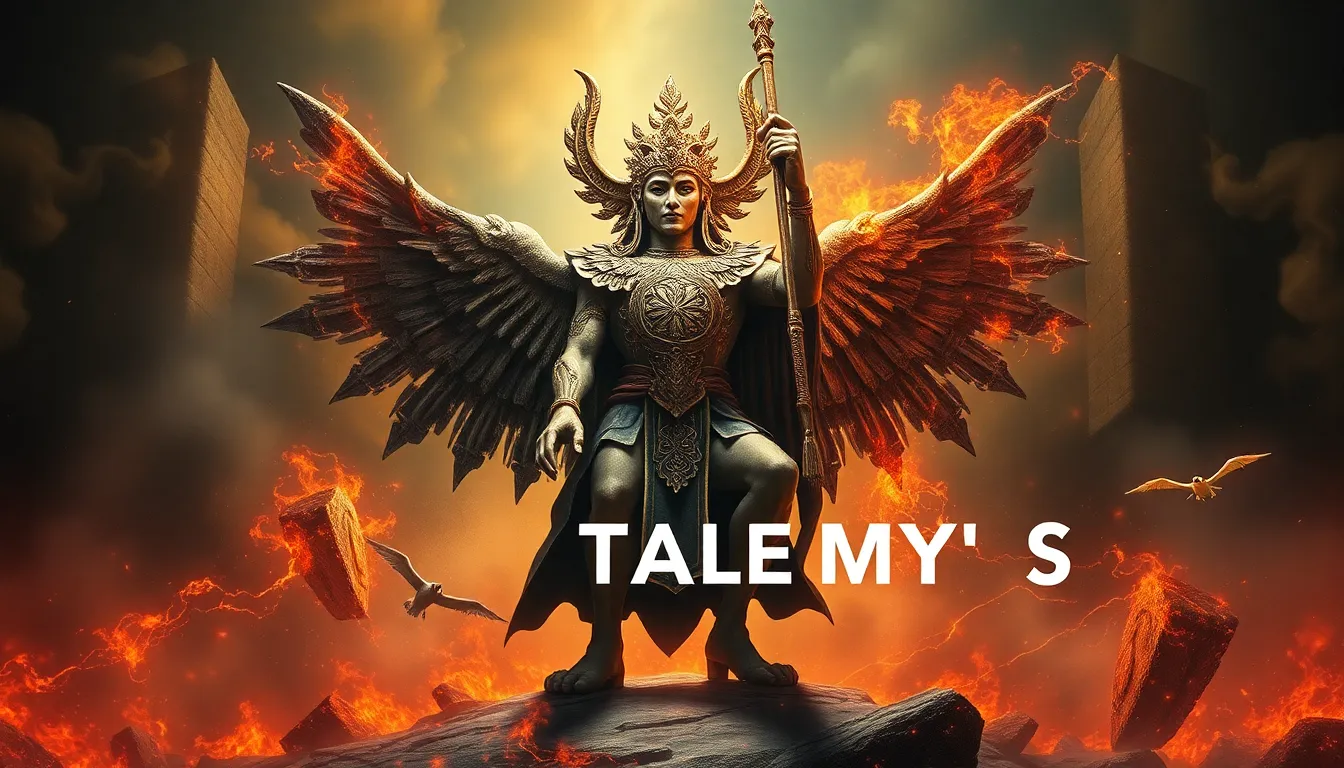The Intersection of Myth and Morality: A Philosophical Exploration
I. Introduction
Myth and morality are two intertwined concepts that have shaped human thought and behavior throughout history. Myth can be defined as a traditional story, especially one concerning the early history of a people or explaining a natural or social phenomenon, that typically involves supernatural beings or events. Morality, on the other hand, refers to principles concerning the distinction between right and wrong or good and bad behavior.
The relationship between myth and moral frameworks is profound, as myths often serve as narrative vehicles through which moral lessons and ethical codes are conveyed. This exploration will delve into the significance of understanding this relationship, highlighting how myths have historically influenced moral thought and continue to do so in contemporary society.
II. Historical Perspectives on Myth and Morality
Throughout history, ancient civilizations have embedded moral codes within their myths. For example:
- The Mesopotamian Epic of Gilgamesh illustrates themes of friendship, mortality, and the quest for wisdom.
- The Hindu epics like the Mahabharata and Ramayana convey ethical dilemmas and the importance of dharma (duty).
- The Greek myths often feature gods and heroes who embody specific moral virtues or vices.
Myths play a crucial role in shaping ethical norms across various cultures. They provide a framework for understanding complex moral questions and often serve as a guide for acceptable behavior. Over time, there has been a transition from mythological reasoning to more philosophical moral reasoning, particularly during the Enlightenment, when rational thought began to challenge traditional beliefs.
III. The Nature of Myths
Myths possess distinct characteristics that set them apart from other narrative forms. They often:
- Involve supernatural elements or beings.
- Address fundamental human concerns such as creation, morality, and the afterlife.
- Reflect the cultural values and beliefs of the societies from which they originate.
Myths serve as vehicles for moral lessons by presenting conflicts and resolutions that prompt reflection on ethical behavior. They fulfill important psychological and cultural functions, helping individuals understand their place in the world and fostering a sense of community through shared narratives.
IV. Philosophical Theories of Morality
Several major ethical theories have emerged throughout philosophical history, including:
- Utilitarianism: Focuses on the consequences of actions and seeks the greatest good for the greatest number.
- Deontology: Emphasizes duty and adherence to rules, regardless of the consequences.
- Virtue Ethics: Centers on the character of the moral agent rather than specific actions.
Myths have influenced the development of these theories by providing archetypal narratives that illustrate moral dilemmas and ethical principles. For instance, philosophers like Plato incorporated mythological elements into their moral philosophy, using stories like the Allegory of the Cave to discuss the nature of reality and knowledge.
V. Myths as Moral Exemplars
Specific myths have profound moral implications, serving as exemplars of ethical behavior. For example:
- Greek Myths: The tale of Prometheus highlights themes of sacrifice and the consequences of defiance against the gods.
- Norse Myths: The story of Odin’s sacrifice for wisdom illustrates the value of knowledge and foresight.
- Indigenous Myths: Many Indigenous stories emphasize harmony with nature and the importance of community.
Archetypes within these narratives convey moral lessons that resonate across cultures and eras. The impact of these mythical narratives continues to influence contemporary moral dilemmas, providing frameworks for understanding complex ethical issues.
VI. The Critique of Myths in Moral Philosophy
Despite their significance, myths have faced critiques within moral philosophy:
- Some argue against the reliance on myths for moral reasoning, suggesting that they may lack the rigor of philosophical arguments.
- Cultural relativism presents a challenge, as myths can be interpreted in various ways across different cultures, complicating universal moral standards.
- There is potential for myths to perpetuate harmful ideologies, as seen in narratives that reinforce stereotypes or justify violence.
VII. The Role of Myths in Modern Ethical Discourse
Contemporary issues are often framed through mythological lenses. Myths have seen a resurgence in popular culture, influencing modern narratives and moral discussions. For example:
- The hero’s journey archetype informs many modern films and literature, encouraging discussions about personal sacrifice and growth.
- Social justice movements often draw on mythological themes to inspire collective action and moral reflection.
VIII. Comparative Analysis: Myth and Science in Morality
The role of empirical evidence versus myth in moral reasoning presents an intriguing tension. Rationalism often seeks to ground morality in scientific understandings, while narrative and myth offer a different lens through which to view ethical considerations. The future of morality may hinge on the coexistence of myth and a scientific worldview, suggesting that both can inform our understanding of ethics in complementary ways.
IX. Implications for Personal and Societal Morality
Myths play a vital role in individual ethical development, providing narratives that help shape personal values and decision-making processes. Collectively, societal myths shape moral standards, influencing laws, customs, and community practices. Strategies for integrating myth and morality in educational and community contexts can include:
- Incorporating mythological stories in moral education to illustrate ethical principles.
- Encouraging discussions about the relevance of myths in addressing contemporary moral dilemmas.
- Creating community programs that celebrate cultural myths and their moral teachings.
X. Conclusion
In summary, the exploration of the intersection of myth and morality reveals a complex relationship that has shaped human thought across cultures and history. Myths serve as powerful tools for conveying moral lessons, influencing ethical frameworks, and fostering community values. Understanding this interplay is essential for navigating the moral landscape of both personal and societal contexts, highlighting the enduring significance of myth in our moral discourse.



